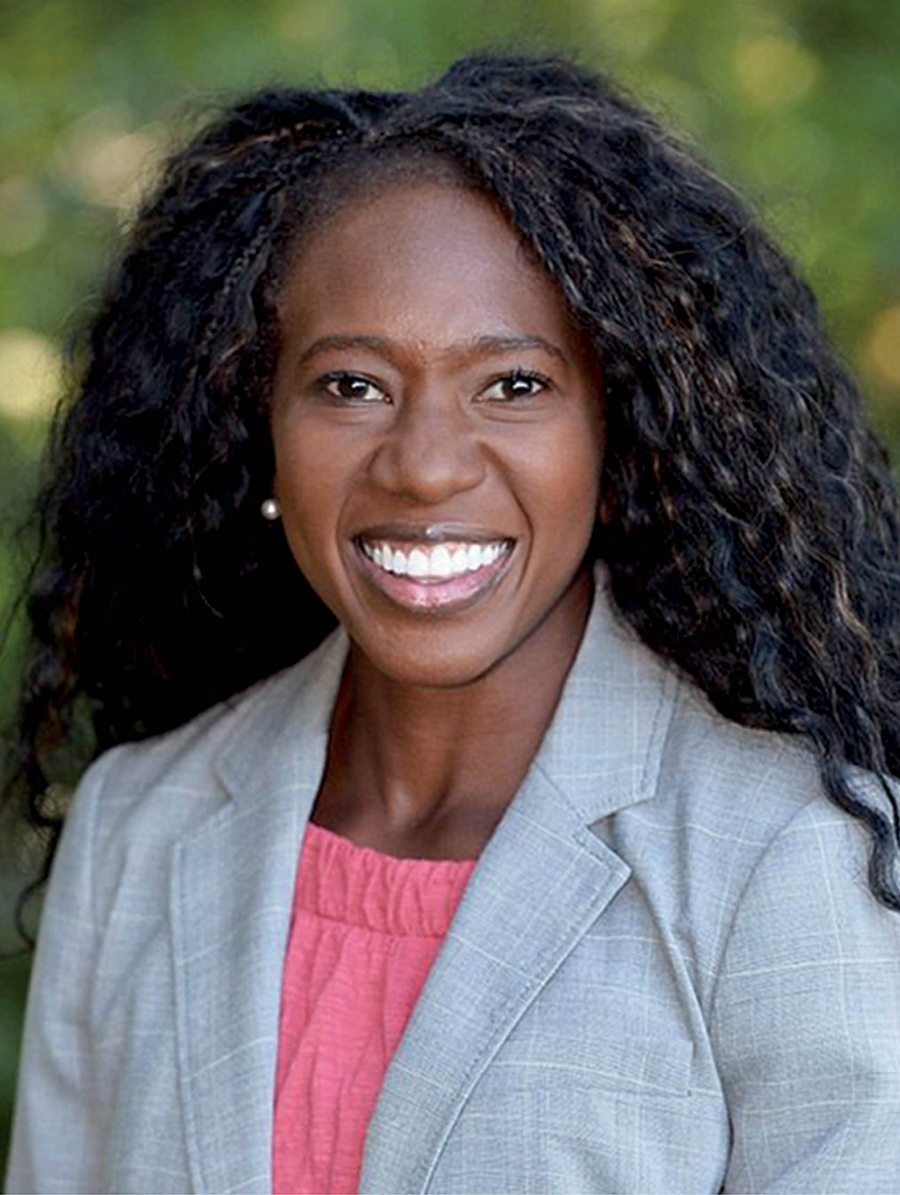Stephanie Bramlett
As the storm’s victims scrambled to find food and shelter, Bramlett wondered why the media called some “looters” while others were characterized as “scrappy survivors.” Why did some neighborhoods largely weather the storm while others were washed away? And how did she wind up in a dorm room asking these questions when so many others didn’t?
“I was thinking about the ways people were represented, who was given more grace than others,” Bramlett ’06G ’11G remembers. She had just arrived at UNH to begin a master’s program in political science, but Hurricane Katrina prompted her to take on an additional field of inquiry. “I kept asking, ‘Who’s studying this?’ and a few months later I applied to the sociology program.”
Those questions — who has access to resources, opportunities and education, who doesn’t and why — drove Bramlett’s academic career and, later, her work in the field of diversity, equity and inclusion in schools throughout New England. She was recognized for her achievements in October 2022 when she was inducted into UNH’s Diversity Hall of Fame.
Since 2018, Bramlett has served as Phillips Exeter Academy’s first director of equity and inclusion. Her work touches every part of the school — she designs professional development programs and leads conversations about anti-oppression with the broader Exeter community. She also works closely with students on the Core Values Project (CVP), which prompts students to make their commitment to equity and inclusion tangible by designing courses, facilitating group discussions and launching community projects.
“It’s exciting to see the proposals they’re putting forward. They’re thinking about ableism and pedagogy; they’re thinking about what programs might be like for students who have difficulty processing things auditorily or have difficulties navigating our campus by foot. These were not things we were thinking about when I was in high school, and that’s huge,” she says.

And for Bramlett, accessibility in education is about more than ushering students from under-served populations into classrooms. It also means giving students tools to decode some of the cultural assumptions around education and ensuring that students see themselves reflected not just in their peers but in their teachers as well.
Her focus on accessibility began at UNH, where she directed a student retention program for multicultural, first-generation and low-income college students and helped develop the curriculum for the Martin Luther King Jr. Leadership Summit. Bramlett saw firsthand how a student’s success depended on more than just performing well in the classroom. Everything from their family’s income and neighborhood to the student’s own past teachers and academic performance informed whether they were thriving on campus.
“Educational success is the product of a whole system. … Representation is a part of that. There were not a lot of adults who looked like me. I never had a Black woman as my classroom teacher, which was a huge absence in my formal education. So I’m really proud to work with students who share some of my social identifications and students who don’t,” she says.
For Bramlett, equity and justice work is a journey that transcends just one person’s lifetime. “I’m a runner, so I talk to my students about passing the baton. There are going to be points where you’re the one sprinting and being active, and then there are times you’re passing the baton so you can get your teammates water and nutrition and making sure everyone is taken care of,” she says.
In other words, it’s a marathon, not a sprint. Progress in equity and justice is measured in great distances and long stretches of time, something else that Bramlett thinks about a lot. Running, she says, has taught her about failure, but also about how persistence lies at the root of progress. She has qualified for and run the Boston Marathon six times, but she’s quick to add that she’s also missed qualifying many more times.
“I think about that in my social justice work. We’re not going to win every time. But if it’s a goal worth pursuing — and if it’s a human justice issue, it’s always a goal worth pursuing — then we’ll keep at it. We’ll change our strategy, and we’re still going to get there, even if it doesn’t happen as quickly or easily as we thought it would.”
She sees that motivation reflected in her students. “They’re willing to fight to make the world better. They haven’t given up, whether it’s about climate change or racial justice, disability justice or justice for our trans and queer siblings. How can I not be inspired by that? I want to do everything I can to be with them on that path.”